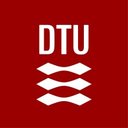DTU – Technical University of Denmark
PhD scholarship in Machine Learning in IoT Edge Devices – DTU Electro
Job Description
We invite applications for a PhD position focused on the implementation and optimization of Machine Learning (ML) and Deep Learning (DL) in Internet of Things (IoT) edge devices.
Are you eager to dive into the world of Machine Learning, embedded IoT systems & Edge computing to make a tangible impact in real-world scenarios? Our PhD opportunity offers a practical and enriching experience for individuals keen on advancing their expertise. We’re looking for motivated individuals who want to become experts in machine learning in IoT edge devices.
Although recent advances on microcontroller computation capabilities makes it possible to implement Machine Learning on IoT edge-devices, these devices face limitations due to often being battery powered, limited in CPU- and memory resources. This implies careful considerations when choosing hardware (e.g. CPU/MCU), ML-algorithms and implementation strategy.
As a PhD student, you’ll work closely with experienced researchers, gaining hands-on insights into the latest developments. This program goes beyond academic pursuits; it’s your chance to actively address real-world challenges in IoT Edge computing. Join us to gain valuable skills and become a knowledgeable professional in the dynamic field of IoT with a direct influence on both research and relevant use-cases.
As our new colleague you will be part of a diverse team, where we value collaboration, innovation, and mutual respect, fostering a culture of trust and open communication.
We expect you to be motivated to engage in teaching activities, as well as student (BSc & MSc) supervision.
Responsibilities and qualifications
As our new PhD student within Machine Learning in IoT edge devices, your primary mission is to drive advancements in the areas of Machine Learning, Deep Learning and efficient implementations in IoT devices and networks. In particular the research should have a focus on limitations and opportunities seen in relation to current consumption and resource limitations in edge-devices. You’ll be at the forefront of applying your research into developing systems that address real-world challenges, for instance disaster prevention, swarm technology and predictive maintenance.
Your responsibilities could be found within the following research areas:
- Analyzing ML vs DL working principles.
Analyze and implement ML & DL working principles on microcontrollers using optimized embedded programming. Investigating working principle differences, challenges pros/cons for applying ML vs DL in Edge computing. Efficiency in terms of computation time, MCU algorithm availability and power usage should be considered, as well as use-case dependency on ML vs DL methodology. - Identification of ML&DL IoT use-cases.
Study possibilities and advantages of embedded implementations of ML in IoT edge devices, comparing performance to cloud implemented ML. A study, looking into the future of use-cases where ML in edge devices could be expected to have a major effect. - Explore usage of pre-trained DL scenarios for efficient Edge computing in MCUs.
As DL generally requires a substantial amount of training data and high processor power this constitutes a challenge when it comes to traditional MCUs in IoT. This area would investigate work-arounds and/or methods that make DL relevant and useful in Edge computing. - Pre-learning vs on-device training.
Investigate the possibilities and limitations of on-device ML/DL training.
Investigate possible use-case dependencies, identify optimal subsets of use-case types that will allow for on-device training. - Edge crowd/swarm-training. Edge Learning.
Overcome challenges of high-volume training set needs in DL by device crowd-sourcing of training data from a larger amount of IoT edge devices. - Communication channel optimization.
Optimization of communication channels in relation to latency, and reliability to support real-time machine learning tasks at the edge. Seen from a multiple layer point of view, i.e. choice of physical layer, data link, network, transport – layer.
Explore the option of distributed algorithms tailored for edge learning scenarios.
Investigate centralized vs distributed data storage for optimal and balanced edge-learning. - Data integrity & security aspects of ML enabled edge computing.
As data-analysis and decision making is being distributed more into the edge rather than being centered in the cloud, this may open up for security issues as data is now potentially exposed at multiple locations. - Collaboration: Collaborate closely with industry and research partners to identify relevant use-cases and achieve research goals.
- Publication: Share your findings and insights by publishing research in leading journals and conference proceedings, contributing to the academic and industrial communities’ knowledge.
You must have a two-year master’s degree (120 ECTS points) or a similar degree with an academic level equivalent to a two-year master’s degree.
We are looking for a profile who can make a well-prioritized plan and follow it to ensure an ongoing progression in results is achieved. As part of this, you must have previous knowledge of embedded programming & computing, machine learning and deep learning as well as theoretical knowledge and practical experience within of Internet of Things in general. Knowledge sharing and constructive teamwork are key to the success of the project. Your CV should comprise:
- Knowledge in general IoT, embedded computing & programming, electrical circuitry, communication networks, wireless networks, servers, network security and artificial intelligence such as machine learning and deep learning.
- Strong teamwork and communication skills, essential for fruitful collaboration with industry partners and colleagues.
- Strong sense of responsibility, self-motivated, independent, creative, trouble-shooter & capable of thinking outside the box.
- Proficiency in one or more Scandinavian languages will be prioritized. Needed for bachelor course teaching and supervising.
Approval and Enrolment
The scholarship for the PhD degree is subject to academic approval, and the candidate will be enrolled in one of the general degree programmes at DTU. For information about our enrolment requirements and the general planning of the PhD study programme, please see DTU’s rules for the PhD education.
We offer
DTU is a leading technical university globally recognized for the excellence of its research, education, innovation and scientific advice. We offer a rewarding and challenging job in an international environment. We strive for academic excellence in an environment characterized by collegial respect and academic freedom tempered by responsibility.
Salary and appointment terms
The appointment will be based on the collective agreement with the Danish Confederation of Professional Associations. The allowance will be agreed upon with the relevant union.
The period of employment is 3 years. Expected starting date is 1 August 2024 (or according to mutual agreement). The position is a full-time position.
You can read more about career paths at DTU here.
Further information
Further information may be obtained from Associate Professor Martin Petersen, [email protected].
You can read more about DTU Electro at www.electro.dtu.dk.
If you are applying from abroad, you may find useful information on working in Denmark and at DTU at DTU – Moving to Denmark. Furthermore, you have the option of joining our monthly free seminar “PhD relocation to Denmark and startup “Zoom” seminar” for all questions regarding the practical matters of moving to Denmark and working as a PhD at DTU.
Application procedure
Your complete online application must be submitted no later than 20 June 2024 (23:59 Danish time). Applications must be submitted as one PDF file containing all materials to be given consideration. To apply, please open the link “Apply now”, fill out the online application form, and attach all your materials in English in one PDF file. The file must include:
- A letter motivating the application (cover letter)
- Curriculum vitae
- Grade transcripts and BSc/MSc diploma (in English) including official description of grading scale
You may apply prior to obtaining your master’s degree but cannot begin before having received it.
Applications received after the deadline will not be considered.
All interested candidates irrespective of age, gender, race, disability, religion or ethnic background are encouraged to apply.
The Network Technology and Service Platform Group at DTU Electro
The Network Technology and Service Platform Group hosting the project is located in the DTU Electro department. The group’s research program is focused on three main directions: Mission critical communication, Carbon aware networking and Internet of Things communications. Other topics investigated are 5G communication for Drones, Network security, reliable and resilient control network for railway systems as well as ICT solutions for eHealth applications and for smart urban services. The group is partner of two major EU projects and has funding from 5 national projects.
Technology for people
DTU develops technology for people. With our international elite research and study programmes, we are helping to create a better world and to solve the global challenges formulated in the UN’s 17 Sustainable Development Goals. Hans Christian Ørsted founded DTU in 1829 with a clear mission to develop and create value using science and engineering to benefit society. That mission lives on today. DTU has 13,500 students and 6,000 employees. We work in an international atmosphere and have an inclusive, evolving, and informal working environment. DTU has campuses in all parts of Denmark and in Greenland, and we collaborate with the best universities around the world.



